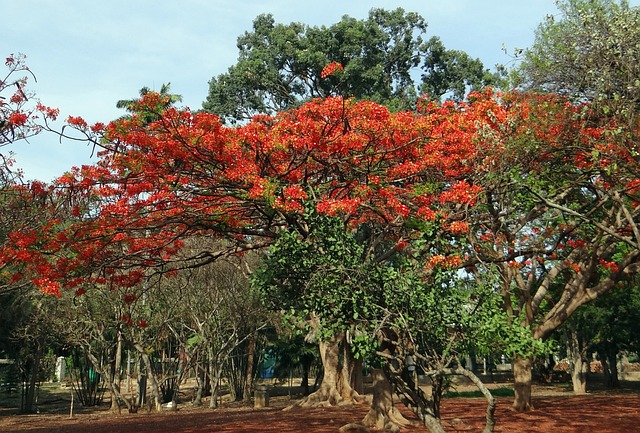
In the scorching heat of Pakistan’s summer, nothing compares to the soothing presence of a shade tree. But what if you don’t want to wait for years to enjoy that cool, leafy refuge? That’s where fast-growing shade trees come in. These green champions shoot up quickly, offering not just comfort from the blazing sun but also aesthetic appeal, environmental benefits, and even economic value.
Whether you’re planning to green your backyard, school campus, farmland, or urban street, this guide will help you pick the best fast-growing shade trees in Pakistan that won’t keep you waiting long for results.
Table of Contents
ToggleWhat Are Shade Trees?
Shade trees are large, fast-growing trees with broad canopies that provide natural shelter from the sun. They help cool down outdoor spaces, reduce heat in urban areas, and create a comfortable environment in gardens, parks, and along roadsides. In Pakistan’s hot climate, shade trees are especially valuable for their ability to lower temperatures and add beauty to any landscape.
Why Choose Fast-Growing Shade Trees?
- Immediate relief from heat
- Quick creation of bird-friendly ecosystems
- Faster landscape value for homes and properties
- Reduced energy bills through natural cooling
- Rapid contribution to air purification and CO₂ absorption
Best Fast-Growing Shade Trees in Pakistan
Sheesham (Dalbergia sissoo)
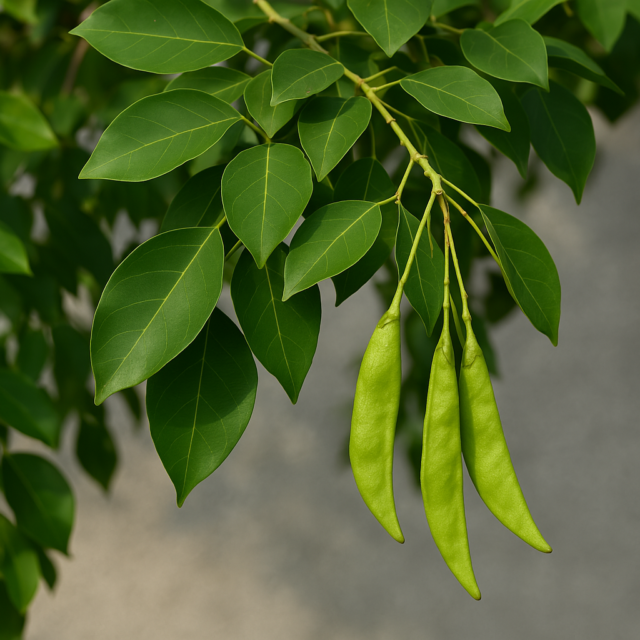
Growth Rate: Fast
Shade Type: Dense, broad canopy
Best For: Farms, roadsides, parks
Sheesham is a native tree known for its rapid growth and adaptability. Within a few years, it can grow tall and wide enough to provide deep shade. The tree is resilient to drought and poor soil, making it a practical option for rural areas and large spaces.
Added Bonus: It’s a valuable timber tree and helps reduce soil erosion.
Siris Tree (Albizia Procera)
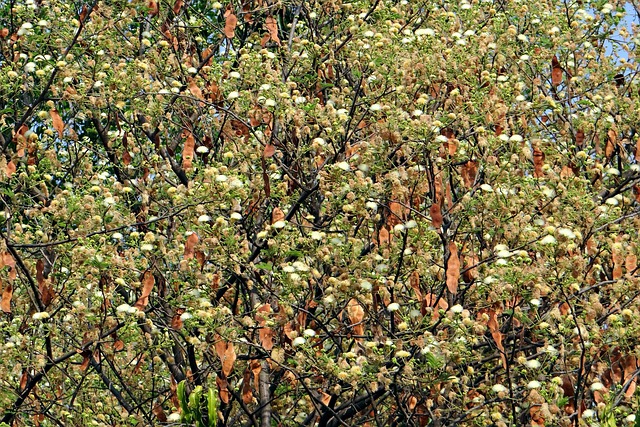
Growth Rate: Very fast
Shade Type: Spreading branches with soft shade
Best For: Agricultural fields, village roads, schools
Known for its fluffy white flowers and quick growth, the Siris tree is a go-to for many farmers and landscapers. Its broad canopy develops quickly and provides effective shade for humans, livestock, and even other plants. It is the fastest-growing tree and requires minimal maintenance. It is also ideal for shade because it is not attacked by pests easily and can grow in any type of soil. Therefore, it is the best fast-growing shade tree, which can grow taller than most other shade trees.
Eco Perk: The tree’s leaf litter enriches the soil with nitrogen, helping other plants grow better.
Gul Mohar (Delonix regia)

Growth Rate: Fast
Shade Type: Wide and umbrella-shaped
Best For: Gardens, avenues, urban spaces
Famous for its fiery red-orange blooms, Gul Mohar grows rapidly and forms a wide, spreading canopy ideal for shaded spots. Within a few years, it transforms any space into a visually striking and cool retreat.
Note: It needs full sun and well-drained soil to thrive quickly. Gulmohar root system is not that deep so, it’s better to plant it in a spot that is a bit protected from strong winds.
Alstonia (Alstonia scholaris)
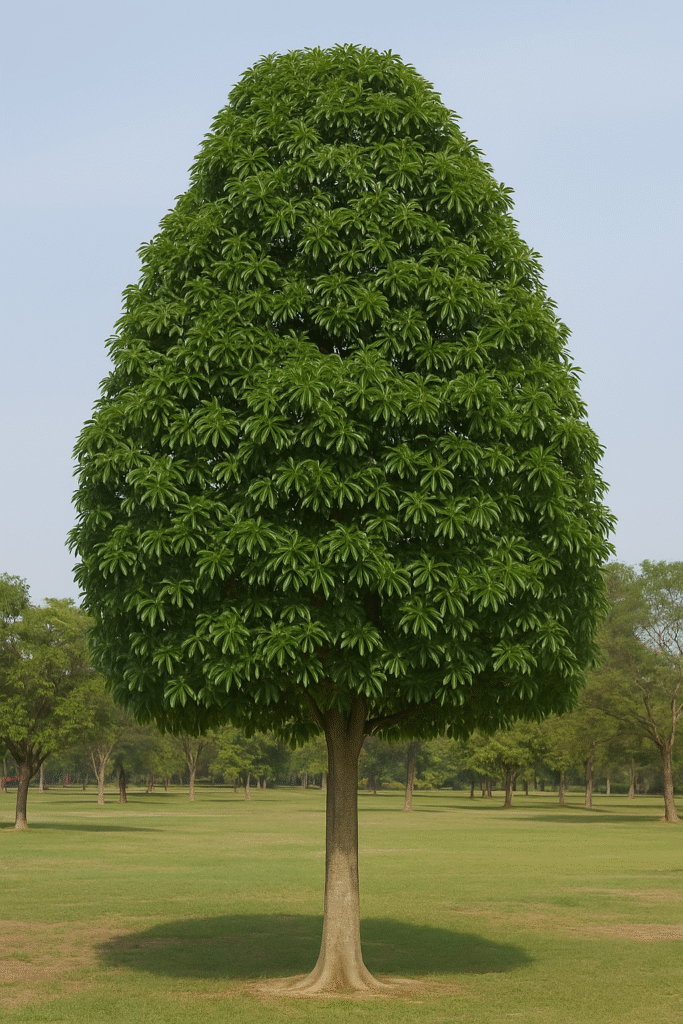
Growth Rate: Fast
Shade Type: Upright with rounded top
Best For: Institutions, wide streets, boundary plantations
This tree is commonly found in educational and institutional compounds for a reason—it grows fast and straight, with a symmetrical crown. Alstonia adds evergreen shade and elegance without taking up too much lateral space.
Tip: It can also be used as a windbreaker when planted in rows.
Neem (Azadirachta indica)

Growth Rate: Moderately fast
Shade Type: Evergreen and medium-dense
Best For: Homes, hospitals, schools, rural areas
Neem is widely loved for its medicinal value and insect-repelling properties, but it also grows faster than many other native trees. It starts offering usable shade within just 2–3 years of planting, making it a great option for home gardens and courtyards.
Health Bonus: Known to purify air, and its extract repels mosquitoes naturally.
Amaltas (Cassia fistula)
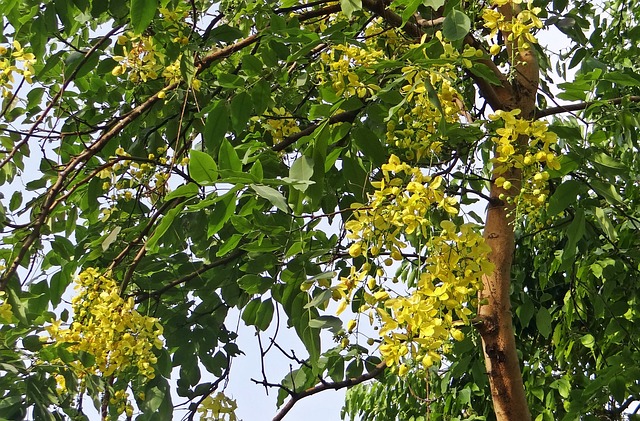
Growth Rate: Fast
Shade Type: Light to medium
Best For: Parks, pathways, gardens
Also known as the Golden Shower Tree, Amaltas is a popular choice for those who want both shade and seasonal beauty. It grows quickly in warm regions and produces vibrant yellow flowers during the summer. Its shade is not very dense but is enough to provide cool comfort during hot days.
Design Tip: Combine with evergreen shade trees for year-round coverage.
Eucalyptus (Eucalyptus camaldulensis)

Growth Rate: Extremely fast
Shade Type: Light, tall
Best For: Farms, roadside plantations, wastelands
If you’re after speed, few trees grow as quickly as Eucalyptus. Within a few years, it can tower over buildings, creating tall shade and wind barriers. However, its water-demanding roots can affect nearby plants, so it’s best for larger areas.
Caution: Avoid planting too close to structures or water-sensitive crops.
Poplar (Populus deltoides)

Growth Rate: Very fast
Shade Type: Upright, moderate
Best For: Commercial plantations, roadside alignments
Poplar trees are known for their tall, columnar form and incredibly fast growth. While they don’t offer wide-spreading shade like some other trees, their height provides excellent sun protection for narrow or confined spaces.
Use Case: Commonly used for timber and paper industries as well.
Pink Shower Tree (Cassia javanica)

Growth Rate: Fast
Shade Type: Spreading and decorative
Best For: Urban gardens, decorative landscapes, campuses
Also called the Pink Shower Tree, this beauty grows quickly and flowers profusely in spring. Its spreading branches provide delightful shade, while the pink blooms add ornamental value to gardens and pathways.
Good To Know: Requires regular watering in dry regions to grow at its best pace.
Mulberry Tree (Morus alba)

Growth Rate: Fast
Shade Type: Medium to dense
Best For: Home gardens, farms, roadside
Often underestimated, the Mulberry tree grows quickly and provides lush shade, along with sweet, seasonal fruits. It’s a multi-purpose tree that cools down your space while giving you something tasty to enjoy in summer.
Extra: It attracts birds and supports biodiversity.
Bukain (Melia azedarach)
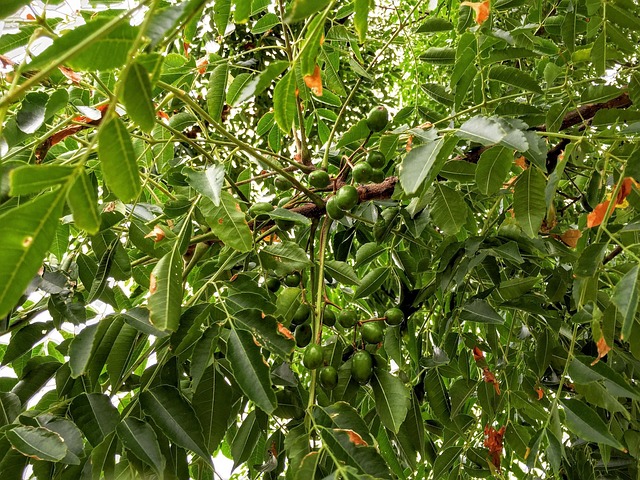
Growth Rate: Fast
Shade Type: Medium to dense
Best For: Roadsides, large home gardens, institutions
Bukain is a fast-growing deciduous tree with soft, feathery foliage and clusters of fragrant, lilac-colored flowers. It not only offers pleasant shade but also beautifies spaces in spring. The tree is low-maintenance and grows well in dry and urban environments.
Bonus: Great for pollution control and attracting birds.
Peepal (Ficus religiosa)

Growth Rate: Fast in early years
Shade Type: Dense, wide canopy
Best For: Courtyards, parks, temples, rural landscapes
The Peepal tree is culturally significant in South Asia and also a practical choice for shade. Its heart-shaped leaves flutter with the slightest breeze, casting deep, comforting shade. It grows relatively fast in open areas and develops a majestic presence over time.
Note: Needs space due to its expansive roots, best planted away from structures.
Sukhchain (Pongamia pinnata)
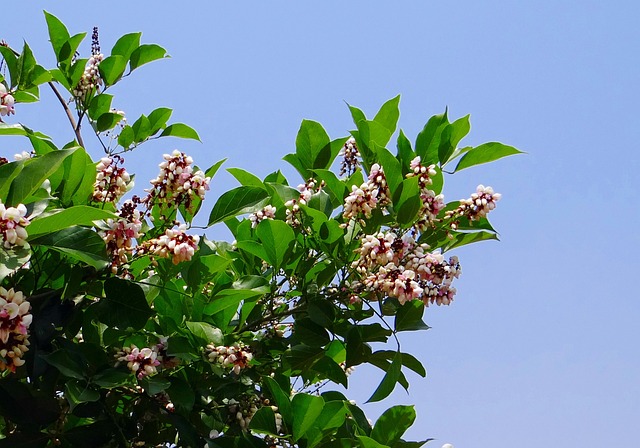
Growth Rate: Fast
Shade Type: Dense and glossy
Best For: Urban landscapes, dry areas, roadsides
Sukhchain is a highly adaptable tree with evergreen leaves and a rounded canopy. Its ability to withstand drought and pollution makes it ideal for cityscapes and large gardens. It grows quickly and requires minimal care once established.
Bonus: Its roots improve soil quality and support eco-friendly landscaping.
Rain Tree (Samanea saman)
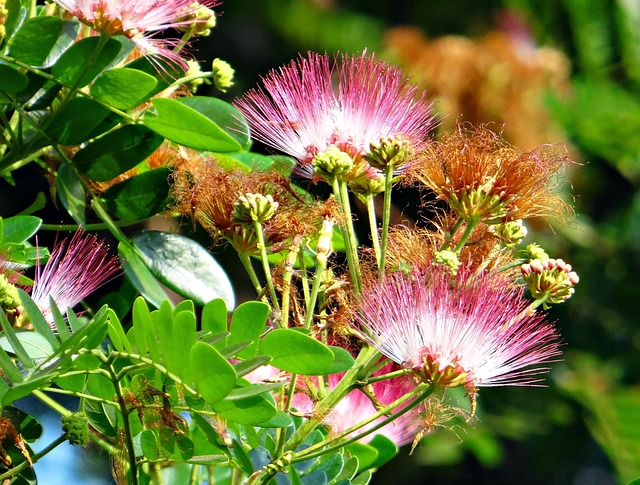
Growth Rate: Fast
Shade Type: Very dense and wide
Best For: Farms, parks, roadside avenues
The Rain Tree lives up to its name with a massive, umbrella-shaped canopy that provides exceptional shade. It’s a favorite for wide spaces where heavy shade is needed. Its leaves fold up at night, giving it a unique appearance.
Extra: Excellent for cooling large open areas.
Indian Elm (Holoptelea integrifolia)
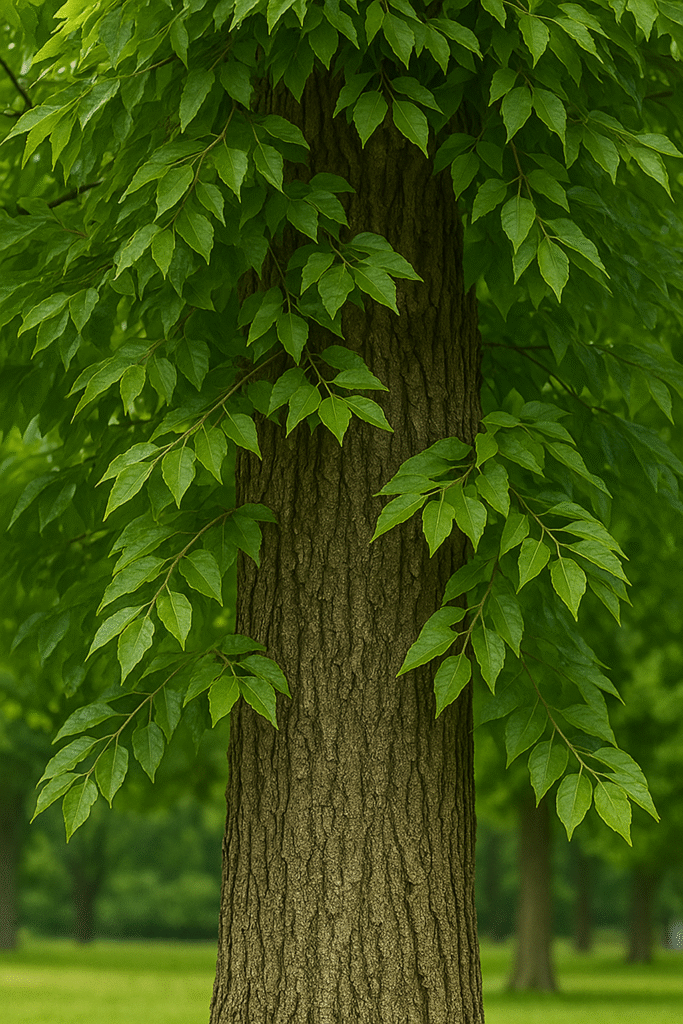
Growth Rate: Fast
Shade Type: Medium to dense
Best For: Gardens, woodland edges, schools
This native deciduous tree grows fast and provides ample shade with minimal effort. It’s rarely featured in home gardens, but its resilience, fast growth, and adaptability to different soils make it worth planting.
Note: Adds a natural look to rural and urban landscapes alike.
Kikar (Vachellia nilotica)
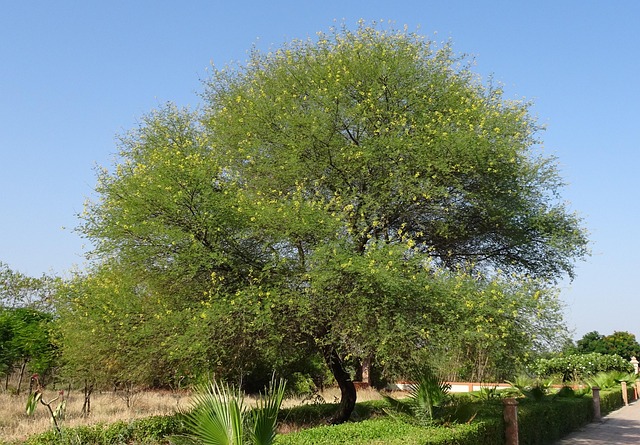
Growth Rate: Fast
Shade Type: Moderate
Best For: Arid landscapes, farms, village roads
Kikar is a classic fast-growing shade tree found widely across Pakistan’s dry zones. It grows upright with feathery leaves and thorny branches. Farmers often use it as a windbreak or boundary tree.
Good To Know: Hardy and also used for fodder and fuelwood.
Jamun (Syzygium cumini)

Growth Rate: Fast
Shade Type: Dense
Best For: Edible landscapes, urban gardens, farmhouses
Jamun trees grow quickly and offer both cooling shade and delicious purple fruit. The dense canopy makes it a perfect dual-purpose tree for homes or farm borders.
Bonus: Loved by birds and people alike!
Quick Comparison Table
Tree Name | Growth Speed | Shade Density | Best Use Case |
Sheesham | Fast | Dense | Roadsides, parks |
White Siris | Very Fast | Wide | Agricultural areas |
Gul Mohar | Fast | Broad | Urban gardens |
Alstonia | Fast | Medium | Institutions, avenues |
Neem | Moderate | Evergreen | Homes, schools |
Amaltas | Fast | Light to medium | Parks, gardens |
Eucalyptus | Very Fast | Tall, light | Large areas, timber zones |
Poplar | Very Fast | Upright | Roadside, commercial use |
Cassia javanica | Fast | Spreading | Ornamental gardens |
Mulberry | Fast | Medium | Home gardens, rural areas |
Bukain | Fast | Medium to dense | Roadsides, home gardens |
Peepal | Fast (initially) | Dense | Parks, temples, courtyards |
Sukhchain | Fast | Dense | Dry zones, urban planting |
Rain Tree | Fast | Very dense | Parks, farms, public areas |
Indian Elm | Fast | Medium to dense | Gardens, schools |
Kikar | Fast | Moderate | Arid farms, boundary planting |
Jamun | Fast | Dense | Fruit gardens, rural landscapes |
If you’re dreaming of a shady spot to escape the blazing sun, don’t wait years to get there. These fast-growing shade trees in Pakistan can start transforming your surroundings in just a few seasons. From the practical Siris and Sheesham to the ornamental Gul Mohar and Cassia javanica, there’s a quick-growing option for every purpose and place.
Pro tip: Choose a mix of evergreen and deciduous species for year-round shade and visual variety.
